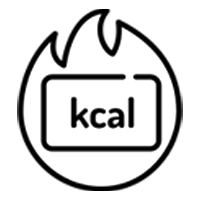Show summary Hide summary
What are the health benefits of fitness training?

Everything you need to know about fitness
What are the health benefits of fitness training? Use the tool below to find out all the benefits of fitness training and discover whether this sport meets your goals and expectations.
More information on fitness
Is fitness good for your health? Is it a good sport that’s accessible to everyone? Whether you’re a beginner or an experienced exerciser, you’ll find a list below of the benefits and problems you may encounter when practising fitness.

TOP 4 advantages and benefits of fitness
Fitness is a dynamic sport with many virtues. Here are just a few of them:
- Fitness improves cardiovascular endurance and breathing
- Fitness improves balance and coordination
- Fitness helps you relax and reduce tension
- Fitness tones the body and helps with weight loss
What are the disadvantages and contraindications of fitness?
Fitness is an endurance sport that boosts cardio. It is therefore not recommended if you have cardio-respiratory problems. Although fitness can be beneficial to your health, it can also expose you to certain pathologies such as lower back pain, tendonitis, sprains, tears or fractures. If you have back problems, fitness can make them worse. If in doubt, it’s best to seek medical advice.
Definition, advice and information on fitness!
The word fitness covers several fitness disciplines that combine cardio-training, stretching and weight training.
Fitness was born in the 60s with the doctor Kenneth Cooper, at a time when the craze for physical fitness was taking off. More toned since then, fitness has been thoroughly modernised and now covers a range of activities such as step, body combat, body sculpting, LIA and stretching. Fun, friendly and accessible to all, fitness is practised in virtually all gyms.
Optimizing Health Benefits of Sports through Nutrition
Regular physical activity is essential for health, but to fully benefit from sports, proper nutrition is vital. A nutritious and balanced diet complements physical activity by providing essential nutrients for optimal performance and recovery.
A balanced diet ensures the intake of macronutrients—carbohydrates, proteins, and fats—that are necessary for sustaining physical effort and aiding muscle recovery. Additionally, consuming a variety of vitamins and trace elements boosts the immune system and prevents deficiencies.
Understanding the concept of energy balance is fundamental for maintaining a healthy weight and improving sports performance. Balancing calorie consumption with expenditure ensures your body functions at its best.
For long-term health and fitness, it’s important to adopt effective strategies for weight loss and maintenance. Practical advice and a holistic approach to diet and exercise can help achieve and sustain health goals.
To summarize, combining proper nutrition with regular physical activity is key to maximizing the health benefits of sports. This approach not only enhances performance but also promotes overall well-being.
Everything you need to know about fitness
All sports in detail!




















































